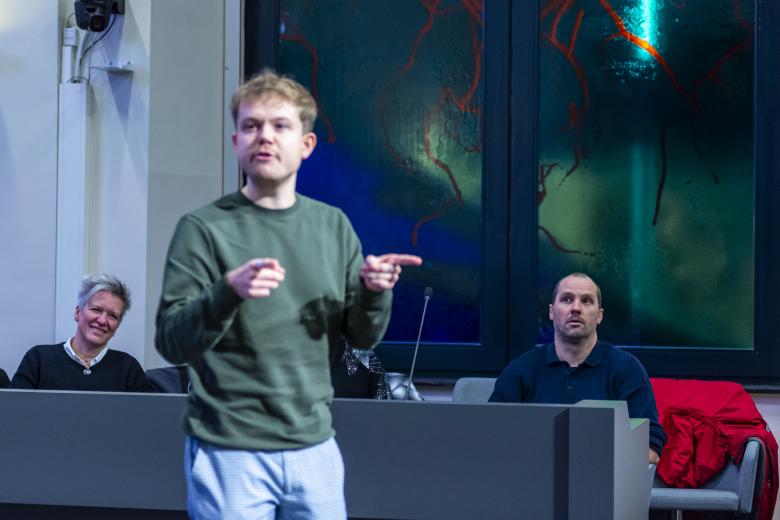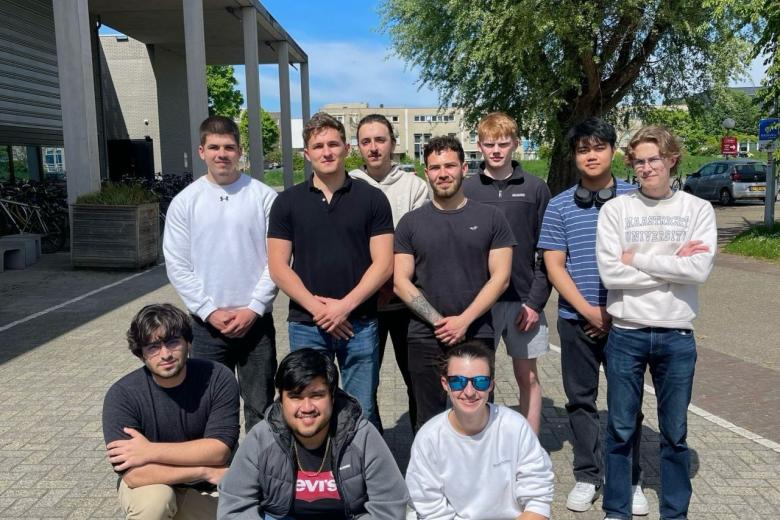Radically new approach of self-care for Alzheimer's patients
ICT4Life is an EU-funded project. Its objective consists in implementing an innovative platform that connects patients, families, health professionals and care-givers through user friendly tools, using results of intensive research in emerging technologies in machine intelligence, computer vision and ambient sensing. The platform is aimed at facilitating patient empowerment, supporting care-givers and establishing cooperation channels within professionals for integrated care.
More autonomy, security and time-efficiency
ICT4Life develops a radically new approach of self-care and integrated care for patients affected by Parkinson's, Alzheimer's and other dementia. Thanks to new digital tools like apps, movement sensors and a Smart TV, ICT4Life promotes more autonomy, security and time-efficiency.
ICT4Life innovative approach to integrated care is based on its social eHealth ecosystem. Scientific research on end-users is the basis for offering personalized models of care. ICT4Life focuses on the early prevention, independence and wellbeing of senior citizens, especially when they live by themselves.
DKE + ICT4LIFE
Maastricht University through the Department of Data Science and Knowledge Engineering (DKE)/ Robots, Agents and Interaction (RAI) group is playing a central role in the project since its beginning in 2016, by conducting cutting-edge research in ambient intelligence and user modelling and creating personalized models of indoor activities for the older individuals with Parkinson’s disease and Alzheimer’s.
The ICT4Life technologies will allow to:
- Monitor the patients in real-time to alarm and call for early intervention
- Prevent fall risk, social isolation, depression, poor well-being and inadequate medication management
- Promote patient’s independency, safety and social involvement
- Provide on time support to care-givers, helping them to feel less stressed
Team Members
Dr. Stylianos Asteriadis
Assistant Professor at DKE (Principal Investigator)
Dr. Mirela Popa
Postdoctoral Researcher at DKE
Mr. Dario Dotti
PhD candidate at DKE
Mr. Matteo Amestoy
Research Associate
Applicability for Alzheimer’s patients
Its specific role focuses on Artificial Intelligence instruments for patients’ activity recognition, multimodal fusion and personalization, using optimization techniques. The approach prosed for discriminating between normal and abnormal behavior patterns was presented in the VISAPP’17 Conference.
As a Consortium member, the University of Maastricht plays a key role throughout all phases of the project, and especially in evaluation procedures, integration, single modalities validation, data pre and post-processing and dissemination in major scientific events in the field of behaviour analysis, image processing, computer vision and artificial intelligence.
Relevant links
Also read
-
More than another ‘to-do’: how the UTQ helped me rethink my teaching
At Maastricht University, the University Teaching Qualification (UTQ) is a professional development programme designed to strengthen teaching and learning. It supports teachers in developing core teaching competencies through a combination of workshops, peer learning, on-the-job experience, and...

-
Brightlands Circular Space focuses on integrated approach to entire plastic value chain
Construction has officially started today in Limburg of Brightlands Circular Space, a demonstration facility that accelerates the transition to circular plastics.

-
MaaSec – The Netherlands' Only Active ACM Student Chapter captures the flag
In January, a group of Computer Science students at Maastricht University launched MaaSec, currently the only active ACM student chapter in the Netherlands. And in just a few months, they've already made a name for themselves; especially in the world of Capture the Flag (CTF) competitions.
